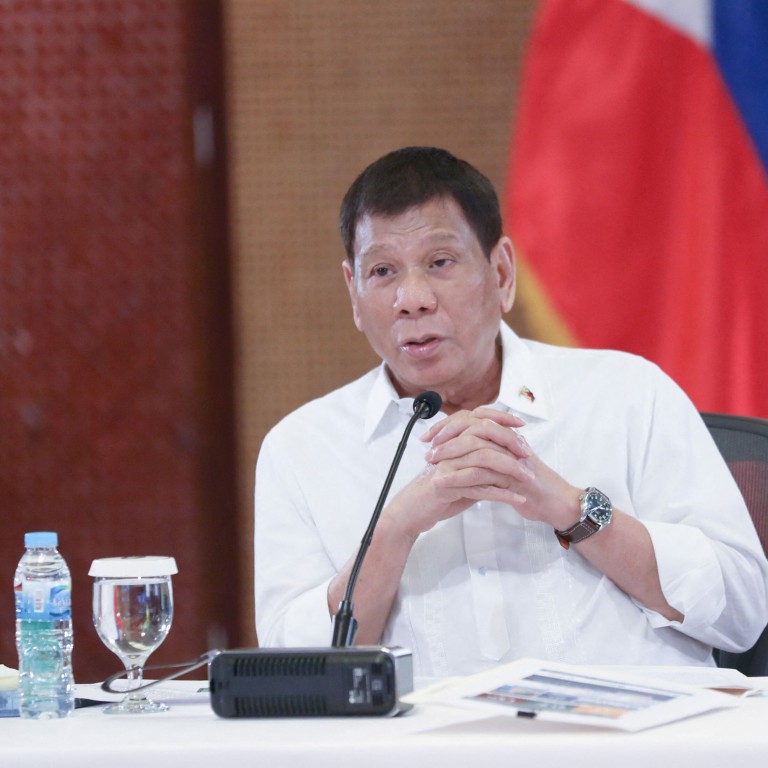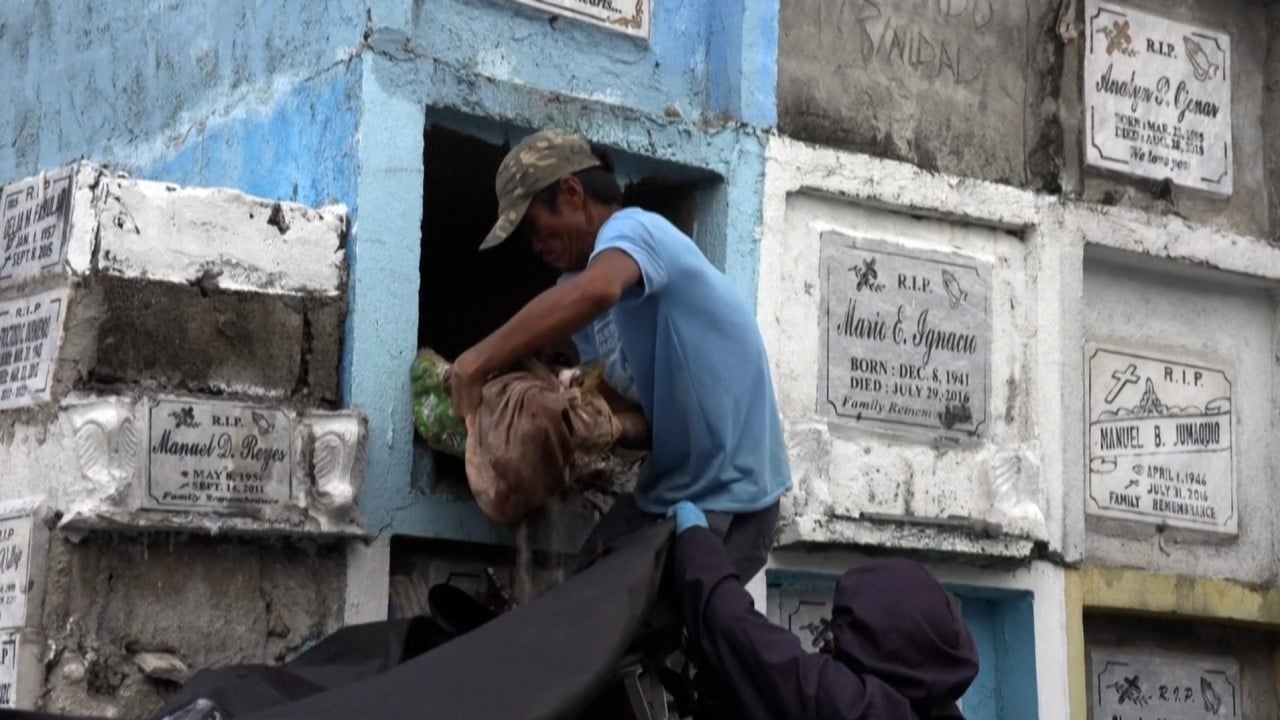
Philippines will not cooperate with ICC ‘war on drugs’ probe, Duterte lawyer says
- The International Criminal Court has authorised a full investigation into possible crimes against humanity during the anti-narcotics campaign
- But President Rodrigo Duterte’s government said the ICC does not have jurisdiction in the country after he pulled out of The Hague-based court
ICC judges on Wednesday authorised a full-blown investigation into Duterte’s anti-narcotics campaign, which rights groups estimate has killed tens of thousands of people, saying it resembled an illegitimate and systematic attack on civilians.
“The government will not let in any ICC member to collect information and evidence here in the Philippines. They will be barred entry.”
Duterte pulled Manila out of The Hague-based court after it launched a preliminary probe, but the ICC said it had jurisdiction over crimes committed while the Philippines was still a member.
“The president’s position does not change. ICC is bent, at the inception, of proceeding with this case in violation of our constitution and defiance even of its own Rome statute,” Panelo said.
ICC judges authorise investigation into the Philippines’ ‘war on drugs’
Rights groups, lawyers and relatives of people killed in the drug war welcomed the ICC decision.
“I’m glad because this might be a way for us to get justice for the deaths of our loved ones,” said Corazon Enriquez, who blames Duterte for the killing of her son during a police raid on their home in 2016.
“That’s what we’re hoping for – for that person responsible for the deaths of our children and family members to pay.”
Edre Olalia, the president of the National Union of Peoples’ Lawyers, said the organisation hoped this was “the beginning of the end to impunity” while rights group Karapatan said “Duterte and his cohorts should be made accountable for these crimes”.

Duterte was elected in 2016 on a campaign promise to get rid of the Philippines’ drug problem, openly ordering police to kill drug suspects if officers’ lives were in danger.
At least 6,181 people have died in more than 200,000 anti-drug operations conducted since July 2016, according to the latest official data released by the Philippines.
ICC prosecutors in court papers estimate the figure to be between 12,000 to 30,000 dead.
Duterte, in his last State of the Nation address, defended the campaign, saying it had cut crime and improved peace and order.
Philippines drug war: Duterte says he can be held responsible for killings
Duterte has repeatedly attacked the world’s only permanent war crimes court, vowing not to cooperate with its probe.
Presidential spokesman Harry Roque said on Thursday that Duterte had “no reaction” to the ICC announcement. “From the start he has said he will die first before he will face foreign judges,” Roque said. “If there are complaints, they have to be adjudged in the Philippines because our courts are functioning, and the ICC court has no jurisdiction.”
But the Philippines’ top judges ruled earlier this year that the ICC can prosecute “government actors” for alleged crimes committed before the country withdrew from the tribunal – contradicting Duterte’s assertion.
The ICC said there was a “reasonable basis” to believe that the crime against humanity of murder had been committed in the crackdown.

03:14
Philippine drug war victims forced out of graves as leases expire
Its investigation will also cover alleged extrajudicial killings in the southern Davao region between 2011 and 2016, when Duterte was mayor.
“If he’s guilty, he should be held accountable,” said Santos Reario, a barber in the capital Manila. “Maybe that’s why he’s planning to run for vice-president – to escape accountability.”
Duterte, barred under the constitution from seeking a second term, declared last month he will run for the country’s second-highest office next year.
Critics said the move was partly driven by fear of criminal charges, though there is debate over whether the vice-president enjoys legal immunity.
Philippine election: momentum behind Sara Duterte builds
Human rights lawyer Kristina Conti said the ICC investigation could take months or even years.
The government’s refusal to cooperate would make the probe “hard”, but she said ICC prosecutors could work with groups on the ground to get the evidence they needed.
Families said they were prepared to wait.
“Even if it will take a long time, at least we have something to look forward to instead of just waiting for nothing,” said one victim’s mother, who asked not to be identified.
Additional reporting by Reuters

.png?itok=arIb17P0)